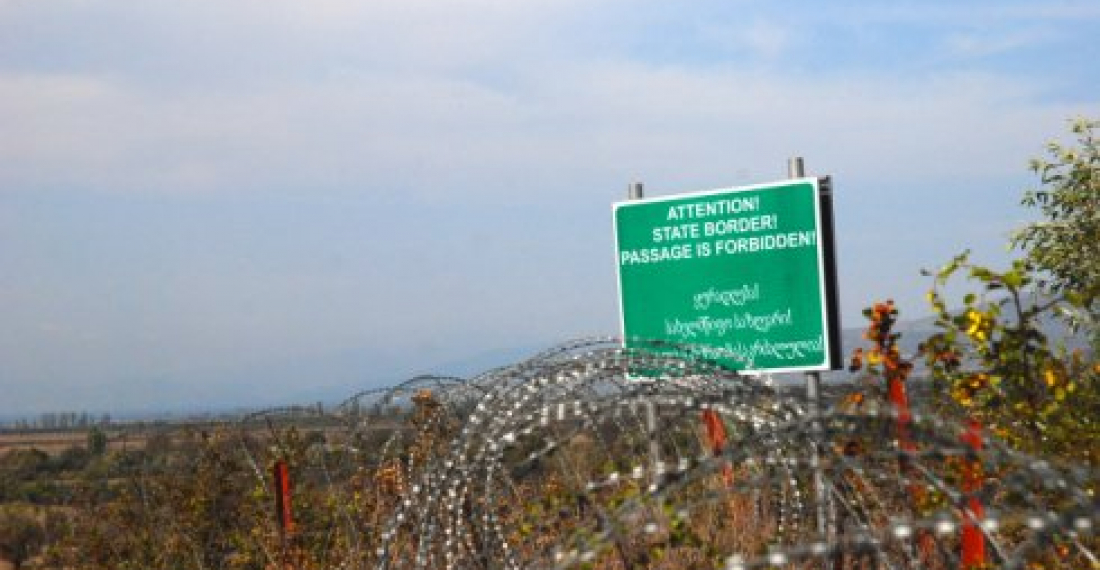Russia continues with its misguided policy of building a fence around the territory of South Ossetia in its efforts to create an artificial international border at the heart of Georgia.
This week it was the turn of the village of Gugutiantkari, to the east of the South Ossetian administrative capital Tskhinvali. The fence being constructed cuts across the village. This latest development has already been condemned by various governments and international organisations.
On Thursday, the United States Embassy in Tbilisi issued a statement stating that it
"is troubled by reports that Russian-backed de-facto authorities have resumed the installation of fencing at the village of Gugutiantkari, near the Administrative Boundary Line of the Russian-occupied Georgian territory of South Ossetia. The process of "borderization" is a threat to peace and stability, as it harms livelihoods and hinders the flow of people and goods. We once again call upon Russia to withdraw its forces to pre-conflict positions and allow unfettered access for the delivery of humanitarian assistance, per its obligations under the 2008 ceasefire agreement."
The Georgian Foreign Ministry said that it has been in contact with relevant international structuires seeking support to stop the process.
Later today (Friday, 16 August) members of the Tbilisi based diplomatic corps are expected to visit the area to see for themselves the situation.
The issue of borderisation is a highly controversial one since it flagrantly goes against both the letter and the spirit of an agreement with Russia which brought the short but bloody 2008 Georgia-Russia war to a halt.
source: commonspace.eu with agencies
photo: A new fence being built in the village of Gugutiatkari as part of a misguided Russian policy.






